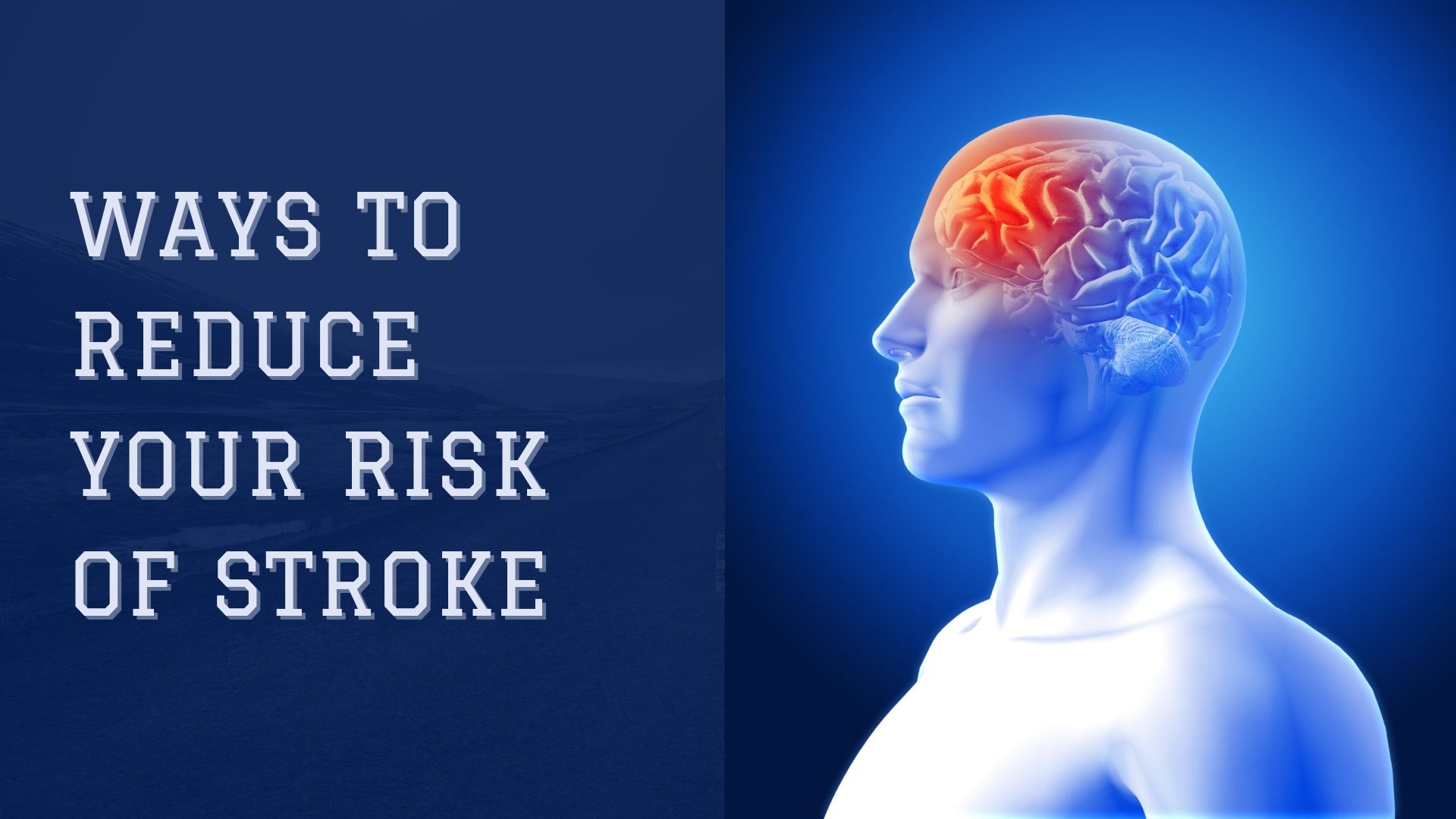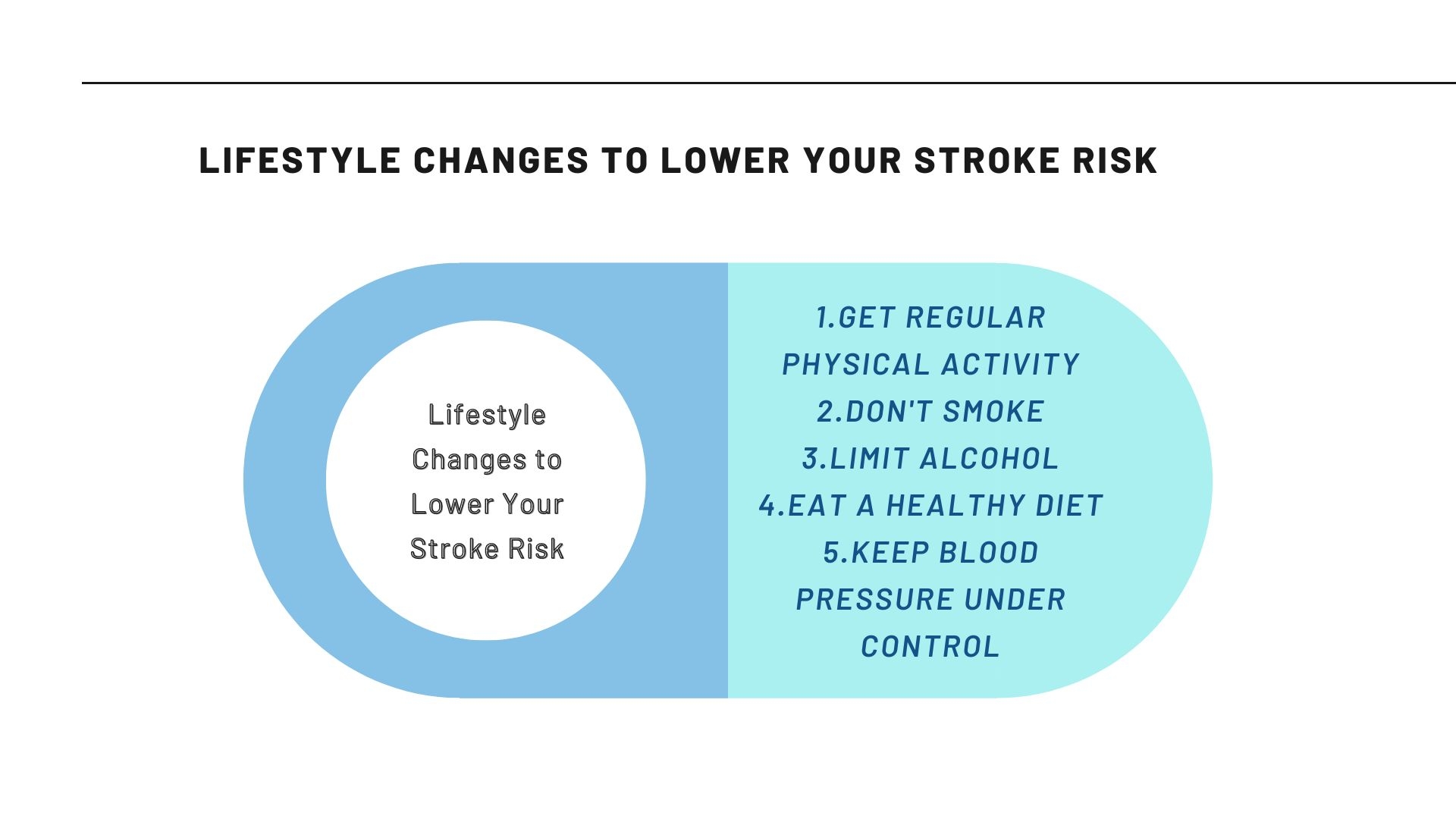
Did you know that strokes are the leading cause of long-term disability in the United States? Scary, right? But here's some good news: many strokes can be prevented by making simple lifestyle changes. By following a few easy steps, like exercising regularly and eating a healthy diet, you can significantly reduce your risk of having a stroke. Keep reading for more tips on how to keep yourself healthy and lower your chances of experiencing this life-altering event. In this article, we will explore various ways to reduce your risk of stroke and promote better overall health.
Lifestyle Changes to Lower Your Stroke Risk
To reduce the chances of strok risk, one needs to make certain lifestyle changes. By managing your weight, controlling blood pressure, maintaining a healthy diet, managing diabetes, and following several other lifestyle changes, you can control your stroke possibility.

Get regular physical activity
Getting regular physical activity is one of the most effective ways to lower your risk of having a stroke. Exercise helps improve your overall health and well-being, which can help prevent many common health issues that increase your chances of experiencing a stroke.
Stroke prevention is crucial in maintaining a healthy and fulfilling life. Health professionals suggest doing at least 75 minutes of strenuous activity per week or 150 minutes of moderate-intensity exercise. Exercises such as brisk walking, swimming, jogging, and cycling fall within this category.
Exercising regularly not only aids in maintaining your physical health but also your emotional well-being. It has been demonstrated to lessen feelings of tension and anxiety while boosting those of joy and contentment.
Read to know: Psoriasis and Ayurvedic Treatment: How Does It Work?
Don't smoke
Tobacco use is associated with an increased risk of blood clots and vascular damage, both of which can contribute to a stroke. The danger can be increased even by being among people who smoke. Although it may be difficult, there are many services available to help you kick the habit of smoking.
Get in touch with your healthcare physician first to discuss your alternatives for quitting. Nicotine replacement therapy and other drugs are possible recommendations. Join a support group or get some kind of counselling to help with the emotional and mental components of your addiction.
It's also helpful to figure out what situations or emotions put you in a bad mood and discover alternatives to smoking. Try some deep breathing exercises or yoga if you think stress is to blame. Create a community of people who will cheer you on while you work to improve your health.
Limit Alcohol
Overconsumption of alcohol is associated with an increased risk of stroke and other significant health issues. Women should limit themselves to no more than one drink per day, while men can have two.
If cutting back on alcohol is challenging for you, try drinking non-alcoholic beverages instead or lowering the number of days per week that you drink. You should also be cautious of the size of your drinks, as many establishments provide far more than the standard drink.
Both high blood pressure and irregular heartbeats are risk factors for stroke, and alcohol consumption increases both. Drinking excessively is also linked to an increase in cholesterol and a corresponding rise in body fat.
Eat a healthy diet
Eating a healthy diet is essential in reducing the risk of stroke. A balanced diet can help maintain weight, lower blood pressure and cholesterol levels, all of which contribute to lowering your risk of developing a stroke.
Incorporating plenty of fresh fruits and vegetables into your meals can provide essential vitamins and minerals that can help protect against stroke. Choose whole-grain foods instead of refined grains, as they contain more fibre which promotes cardiovascular health.
Limiting saturated fat intake is also crucial in preventing strokes. Instead, opt for lean meats like chicken or fish over red meat, as well as low-fat dairy products like skim milk and yoghurt. Trans fats should be avoided altogether; these are found primarily in processed foods like cookies, cakes and fried fast food.
Keep blood pressure under control
A critical factor in reducing your risk of stroke is keeping your blood pressure under control. High blood pressure is a leading cause of stroke, and it's crucial that you keep it within healthy levels.
To do this, make sure to get regular check-ups with your doctor and follow their recommendations for managing hypertension. Early detection and management of these conditions can greatly reduce the risk of stroke. This may include making dietary changes such as reducing salt intake or taking medication prescribed by your healthcare provider.
By taking these steps to manage your blood pressure, along with the other measures discussed in this article, you can significantly reduce the likelihood of experiencing a stroke and protect yourself against its devastating consequences.
You may also like to read, How Effective is Stroke Treatment
Conclusion
You can lower your risk of stroke by adopting a healthier lifestyle. A few easy things you can do to reduce your risk of stroke are to get more exercise, stop smoking, and drink less alcohol. Cholesterol and high blood pressure, two major risk factors for stroke, can both be mitigated by eating healthily. By understanding the risk factors and implementing stroke preventive measures, you can significantly reduce your chances of experiencing a stroke.
In addition, high blood pressure can cause severe long-term damage to your organs and must be kept under control if you want to avoid having a stroke. Making these modest adjustments to our daily lives can drastically reduce the likelihood of suffering a stroke.
Remember always that prevention is better than cure when it comes to health matters; therefore, taking preventative measures should be a priority for everyone who wants longevity and quality of life. So take action today by adopting these lifestyle habits that will help you reduce the risk of getting a stroke!
Consider getting guidance and treatment from our doctors at Ayur Bethaniya to manage stroke and prevent the disease from worsening.
You may also like to read, Stroke management through Ayurveda